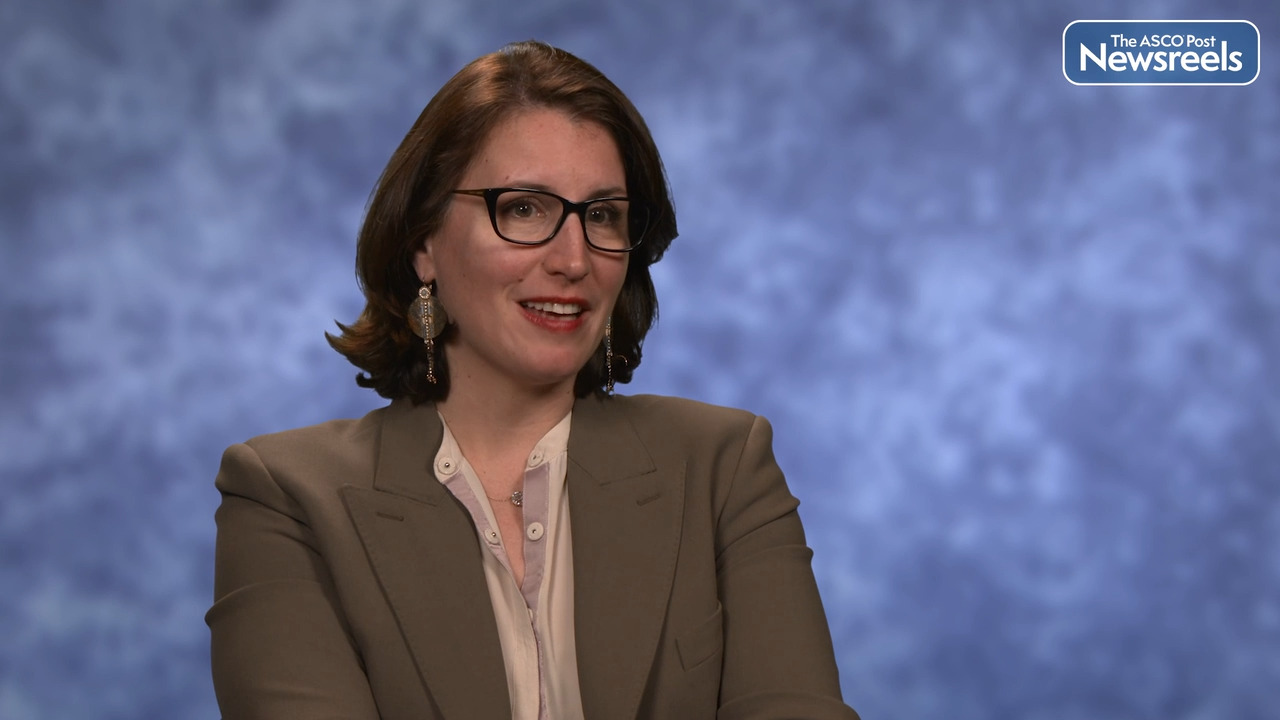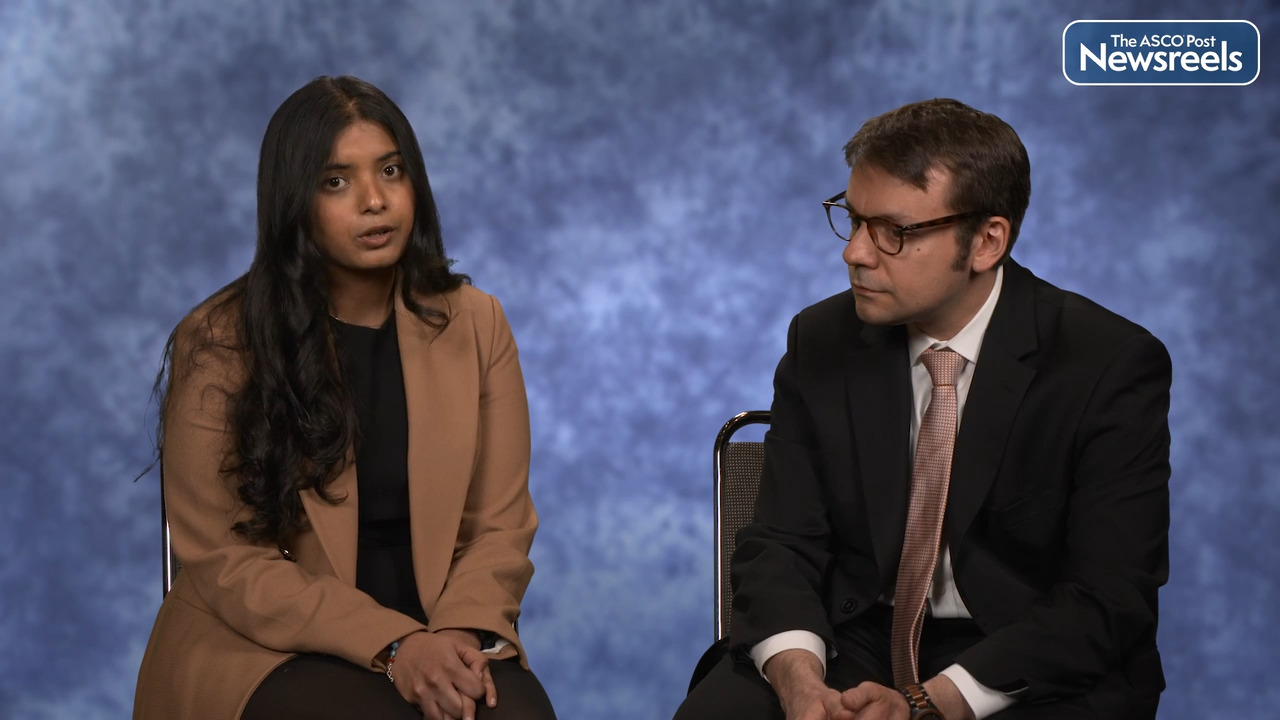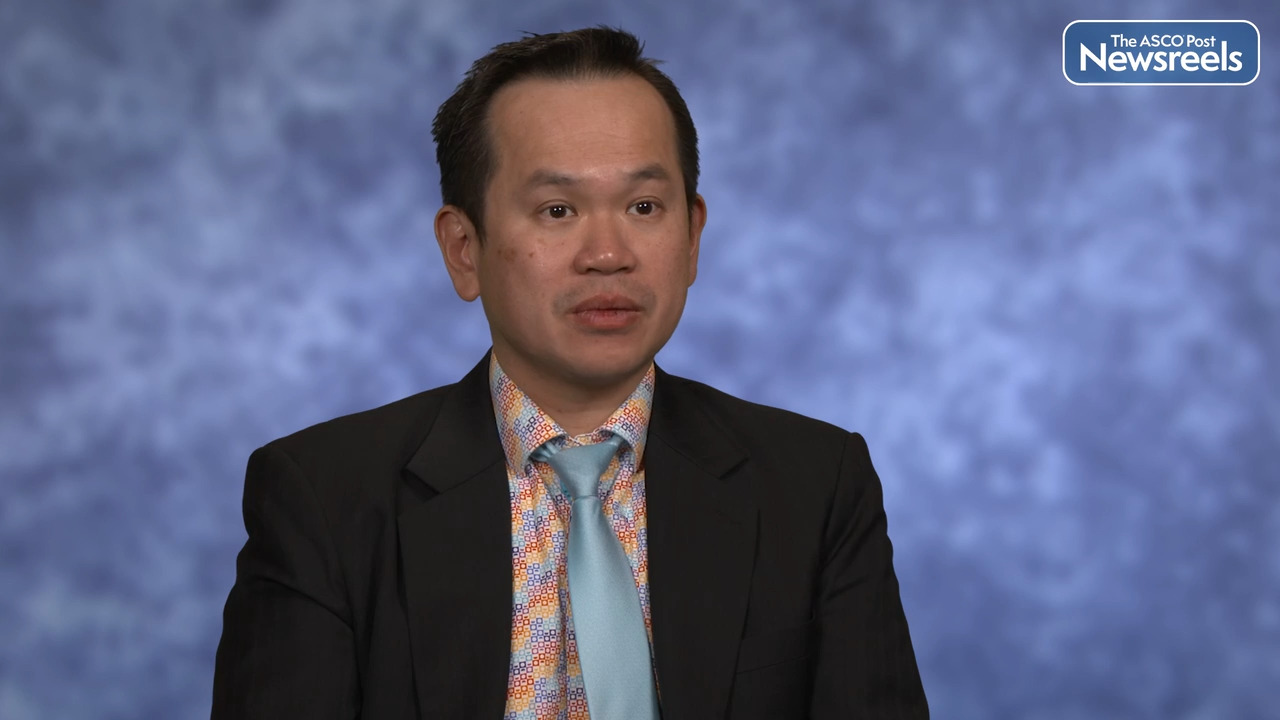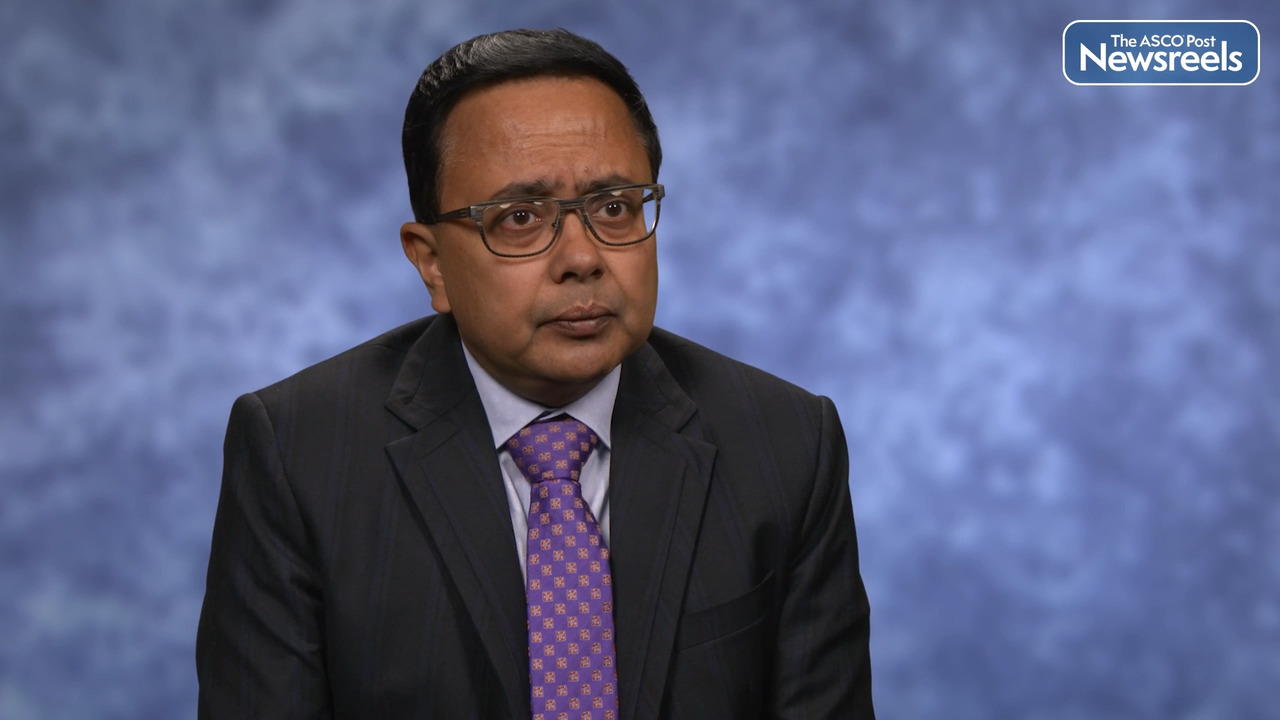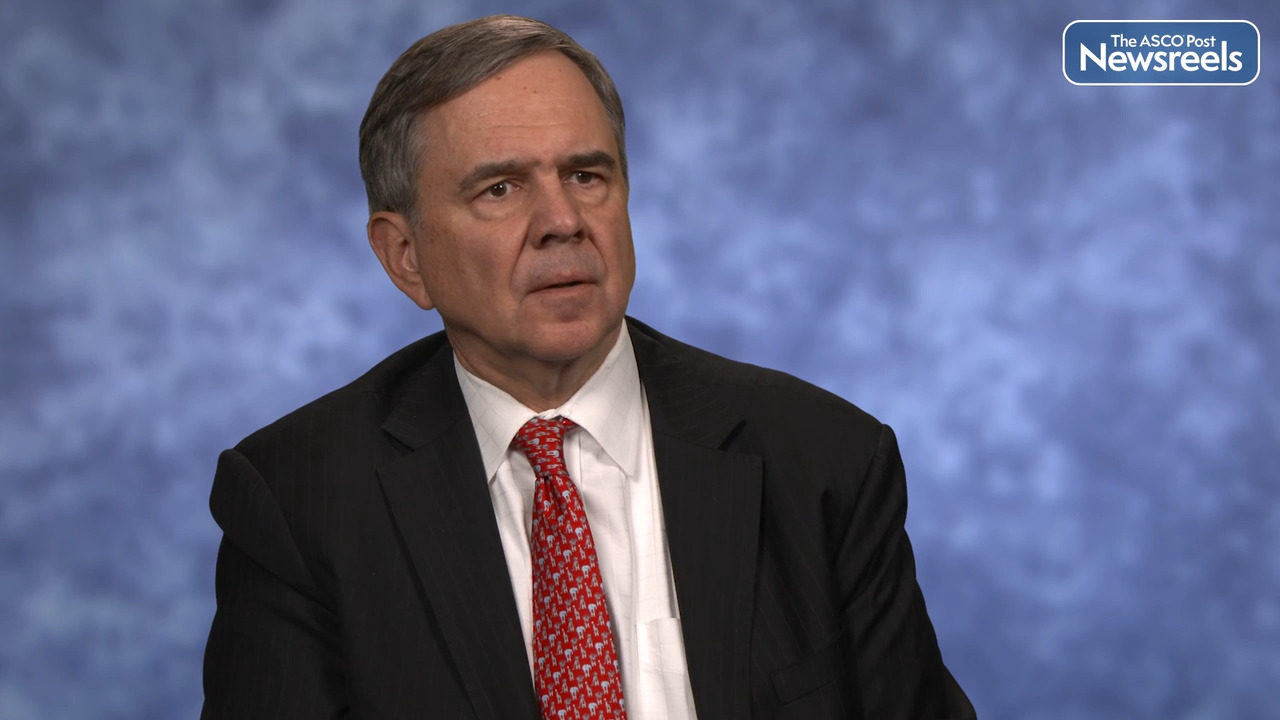Transcript
Disclaimer: This video transcript has not been proofread or edited and may contain errors.
This trial was a trial of nivo monotherapy followed by nivo/ipi boost for patients with treatment-naive clear cell metastatic kidney cancer. And we knew that immunotherapy can produce durable benefit even after treatment cessation, and also have some toxicities that occur after treatment cessation. And so we devised an endpoint called treatment-free survival that could characterize that period of time after treatment stops. And we've looked at this in patients with melanoma and kidney cancer on other trials, but those trials were flawed because the only reason why patients stopped was for toxicity or for disease progression, and there wasn't a built-in treatment endpoint.
In the HCRN GU16-260 trial, there was a endpoint of treatment at 96 weeks, and so that gave us an opportunity to look at treatment-free survival in a situation where treatment stopped. And we looked at the data, now 37.7 months of follow-up and 128 patients were enrolled. And we looked at part A, which was nivo, and for the people who got nivo/ipi boost, part B, we looked at that as one regimen. And with that, and we looked at a 36 month period of time, and we defined treatment-free survival as the area between the registration and time to be getting a second therapy, and the time from registration and the time to stopping the first therapy.
First of all, we saw that the response rate was 36%, 58% in the favorable risk population, and 27% in the intermediate and poor risk population, and that 68% of patients were alive at that three-year time point. And 38% of those patients who were alive were treatment free. But looking at that treatment-free survival on the graph, we saw that for the whole population, treatment-free survival was about 9.5 months. Overall survival average was 30 months, and 11.5 months on treatment and nine months on subsequent treatment. So treatment-free survival represented somewhere around a 36% of the total time. And in the favorable risk population, treatment-free survival was longer at 12.9 months. And in the intermediate poor risk population, it was shorter, around eight months and about 22% of that total time.
But in each of those cases, it was longer than the treatment-free survival in the CheckMate 214 trial for the ipi/nivo arm showing the benefit of actually having a treatment cessation endpoint. So we concluded that treatment-free survival is an interesting endpoint for immunotherapy trials, gives information that is not captured with traditional endpoints, and having a trial with stopping therapy shows better the value of treatment-free survival. And it's something that should be potentially considered as a endpoint that patients care about for future trials. And then another thing, it continues to show in this trial how well the favorable risk population does with immune therapy, and argues for having a pure immune therapy in the favorable risk population.
